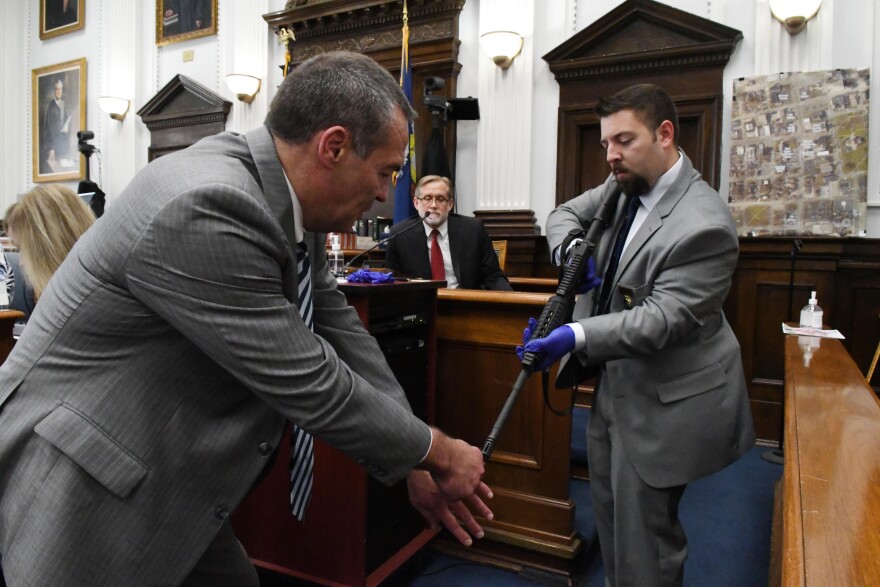Before closing arguments began in the Kyle Rittenhouse trial on Monday, his lawyers argued that the underage firearm possession charge should be dropped.
According to Wisconsin law, anyone under the age of eighteen who possesses a dangerous weapon is guilty of a misdemeanor, and those convicted can serve up to nine months in jail. Rittenhouse was 17 when he shot three people in Kenosha, killing two of them. However, his defense team found an exception to the law and Judge Bruce Schroeder agreed to drop the misdemeanor charge.
John Gross explains this law and the reasoning behind Judge Bruce Schroeder's decision to drop the charge. Gross is a clinical associate professor of law and the director of the Public Defender Project at the University of Wisconsin Law School.
"If you are under the age of 18, this statute only applies to you if you have a rifle or a shotgun that is short-barreled. So in other words, a weapon that is otherwise not legal to have, it is a sawed off shotgun," Gross says.
Lawmakers might have considered minors hunting with adult supervision, however lawmakers did not write that directly into the statute. This can permit some people under the age of 18 years old to possess longer firearms. Gross says that can relate to potential military service, and even Reserve Officer Training Corps.
"There was probably a way that the judge could read this and assume that the legislature made a mistake, assume that the legislative intent was to keep an AR-15 out of the hands of a 17 year old," Gross says.
"But the judge elected to strictly construe the statute based on its language and found that it did not apply to Mr. Rittenhouse," Gross says.
Many have pointed out that the large racial disparity in Wisconsin's justice system are playing out with Rittenhouse's underage gun charges being dropped. According to a report from The Sentencing Project, Black residents in Wisconsin are nearly 12 times as likely to be imprisoned than their white counterparts. Reporting from NBC News, also found that officers in Wisconsin are less likely to arrest white people, and prosecutors decline charges against white people more often.
A judge gave me 2-4 for a gun I never had and they never found and no one was ever shot, but A judge dismissed a weapons charge for A white boy who killed people with a AR15.. F.O.H #Amerikkka
— Mysonne NY General (@Mysonne) November 16, 2021
While Gross says this ruling is limited to this case, he does think it can perhaps prompt legal actions.
"This would be an opportunity really, for the legislature to go back and make it clear when somebody who is 17 might be allowed to have a weapon like that," Gross says. "And under what specific circumstances would they be allowed to handle a weapon like that."
Gross isn't as concerned with the judge's decision, however if Rittenhouse is acquitted, the prosecution might have an uphill battle because of the way the law on self defense is written. Removing all politics from the case Gross says the jury isn't rendering moral judgment about what he did.
"I would caution people ... whatever verdict is rendered in regard to Mr. Rittenhouse, it doesn't end those debates. It doesn't even really inform those debates that much. Those are conversations we still have to have, and neither side on the debate side should feel vindicated because of a particular verdict," Gross says.







